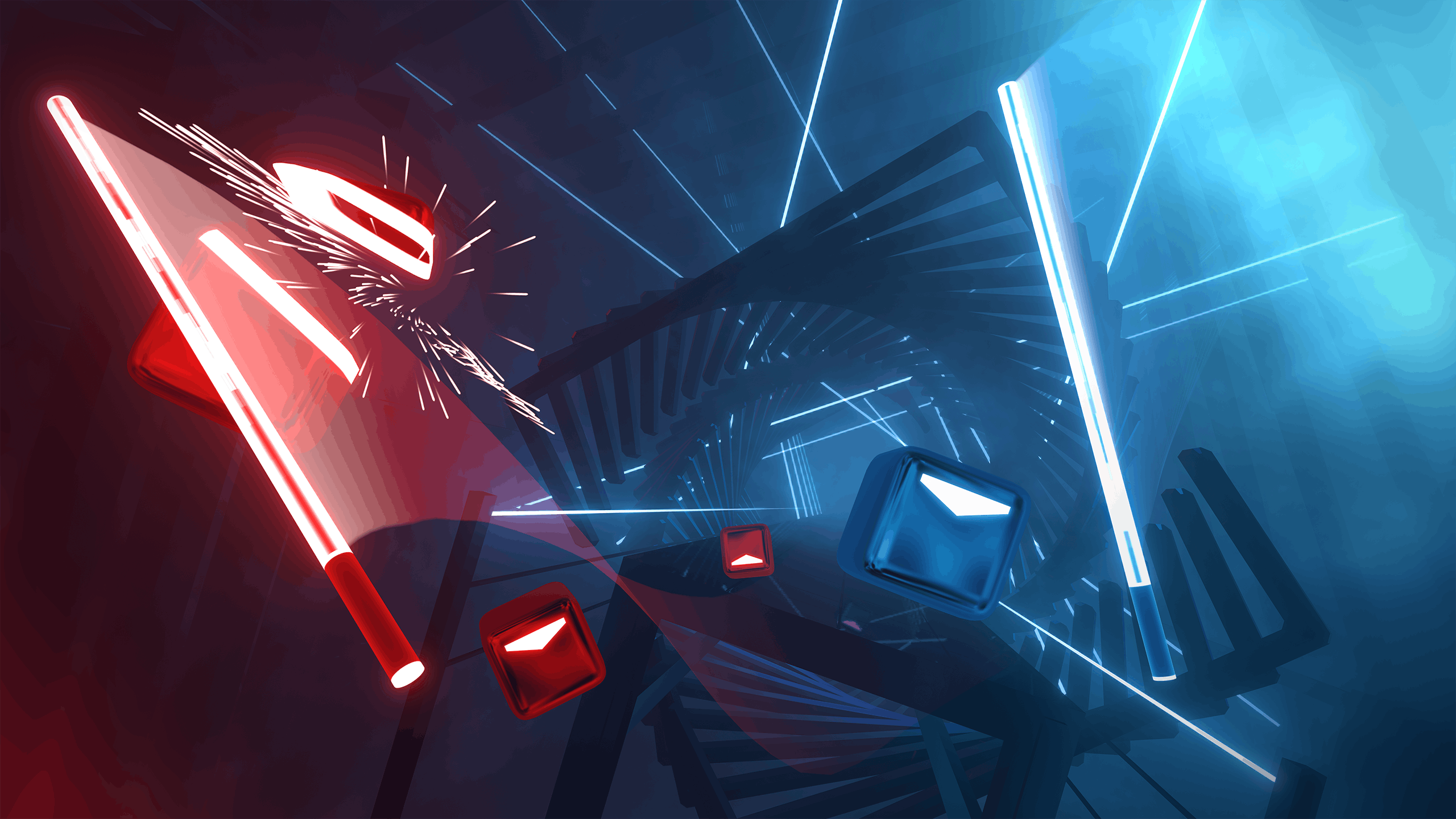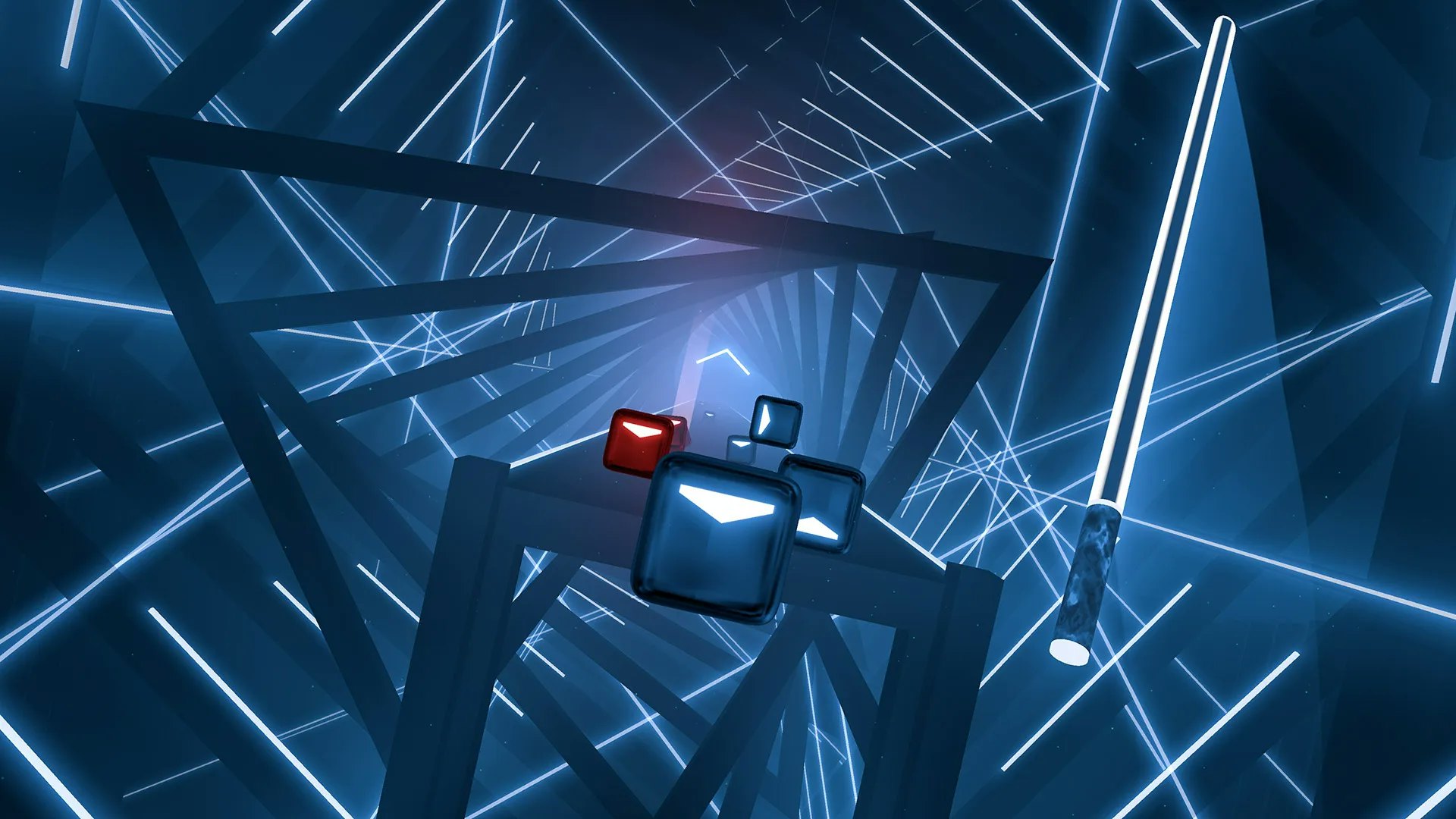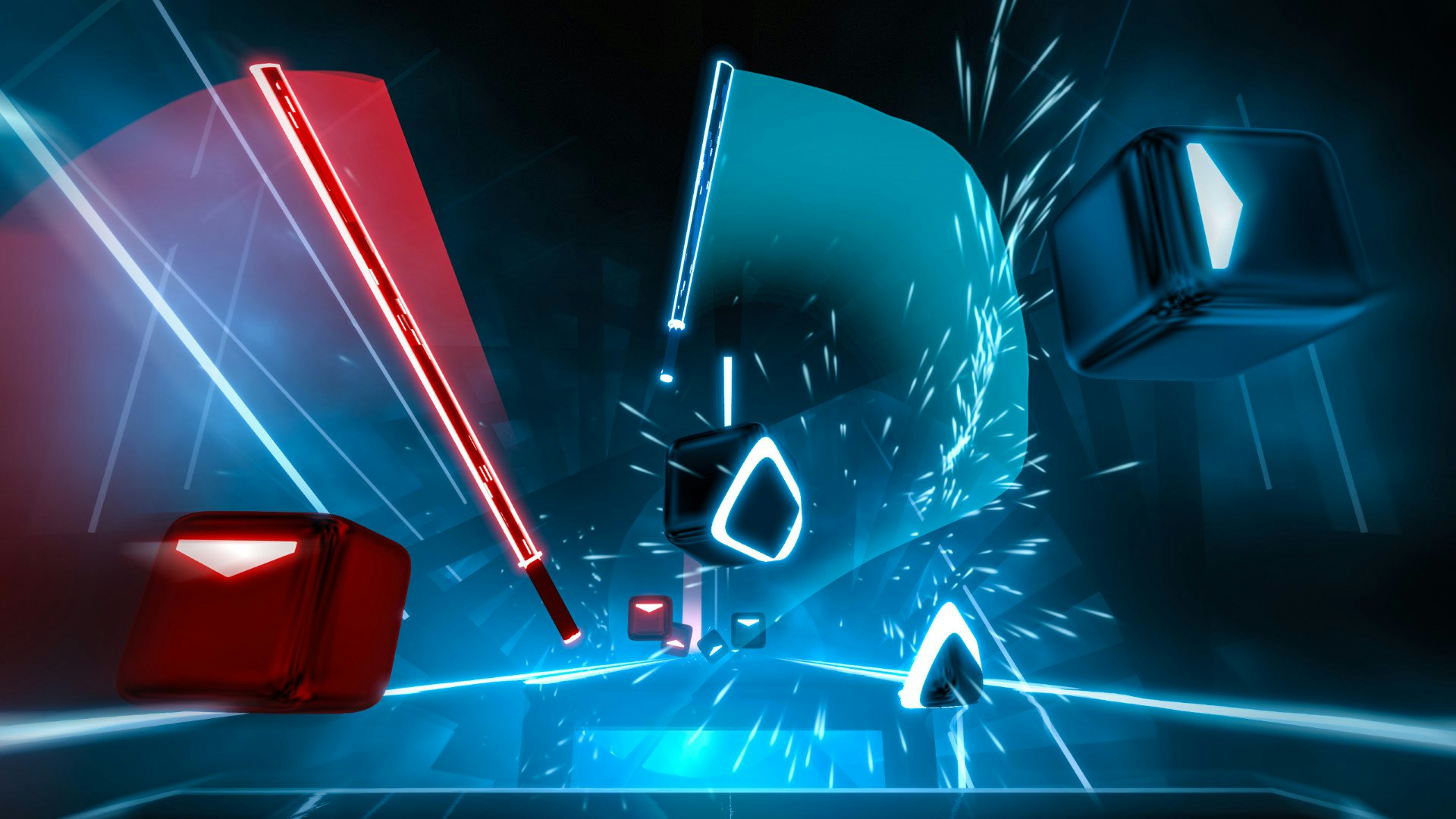
It’s rare that any game comes to define an entire platform. Beat Saber has done just that for virtual reality. Released in 2018 in early access with a full launch the next year, the rhythm game has remained both one of the most beloved VR games and one of the best demonstrations of the power of VR for beginners ever since. Now five years since the game’s official release, it feels even more like the essential VR experience.
Beat Saber is such a universally known part of the VR landscape that describing its mechanics feels almost as unnecessary as describing Super Mario as if everyone hasn’t already heard of it. If you’ve somehow missed the boat, though, it’s simple to grasp: you can think of it as a Guitar Hero-style rhythm game translated into VR. Notes float toward the player in 3D space, and you need to slash them in time to music using your VR controllers. Simple.
But despite its easy-to-understand premise, Beat Saber’s complexity has kept fans entertained for half a decade now. Just by using VR, its familiar rhythm game mechanics take on a whole new dimension (literally), by forcing players to actually move their arms rather than just pressing buttons. That means that even basic patterns can feel more complex because you need to get your whole arm — and sometimes your whole body — into position rather than just flicking your thumb over. Strings of notes feel less like pulling off Street Fighter combos and more like performing an intricate dance at the direction of Beat Saber’s glowing note markers.
Even before its 1.0 release, Beat Saber was an incredibly popular game, becoming Steam’s top-rated game within a week of entering early access. When its full launch arrived the next year, the game included only a handful of songs, but players were already hooked. Since then, dozens of free and paid music packs have been added, including the Daft Punk and Hip Hop Mixtape DLC just this year. But for all the post-launch additions — from Lady Gaga to Lizzo to Queen — that have made Beat Saber a much better experience over the years, the most important update came right along with its 1.0 launch.
Developer Beat Games initially planned to add a level editor to Beat Saber when it entered early access, but it ended up being postponed until the full release. The editor lets players create their own custom tracks, designing note sequences to go along with songs not included in the game itself and curating their pulsating, neon-colored digital stages themselves. The community responded by creating enough tracks to fill hundreds of official DLC packs, pulling from popular artists and more under-the-radar musicians alike, as well as soundtracks from other games and anime.

More than any other factor, these community-created tracks have made Beat Saber my favorite VR game, and one that I’ve poured more time into than probably all other VR games combined. Not every track is of the same quality as Beat Games’ official releases — and many are designed as challenges only for the hardest of hardcore players, which I am decidedly not — but there’s more than enough gold in the pile to keep me playing five years later.
That near-endless supply of songs to bop along to in VR went from an enjoyable diversion to a lifesaver in 2020. Like everyone else, I found myself spending basically all of my time inside during lockdown, and even being somewhat used to that thanks to my usual indoor cat lifestyle, cabin fever quickly set in. After months of wallowing had already taken their toll on my mental and physical health, it was Beat Saber that came to the rescue.
Once I realized that Beat Saber could help me stay in at least somewhat decent shape without having to do actual structured exercise, it became a daily — and multiple times daily — routine for months. At least once a week, I would comb through community creations, adding everything from Nujabes to Blackpink to the ever-growing rotation. The difficulty of some songs — modded and official — made them feel all-but-impossible to complete at first, but tracks that first left me a sweaty, frustrated mess soon became second nature. As I mastered them, I even added ankle and wrist weights to make my personal dance parties into something a little more resembling actual workouts.

Dancing along to Beat Saber tracks eventually became as much meditation as exercise. Completing songs that once demanded my full focus eventually felt nearly automatic, so ingrained into my mind were their complex patterns, letting me just relax and feel my own movement as they played in my ears.
Even now, Beat Saber feels like both a relaxing escape from stress and the most enjoyable thing I do for my health. I dive into the game far less frequently than I used to, but each time I do, I feel my muscle memory quickly return and my stress melt away. VR may have more technically impressive achievements by now, more involved mechanics and more emotionally moving stories. But nothing comes close to Beat Saber as an elemental demonstration of how VR’s physical nature can transport players to another world and — at its best — transform them when they return to this one.







